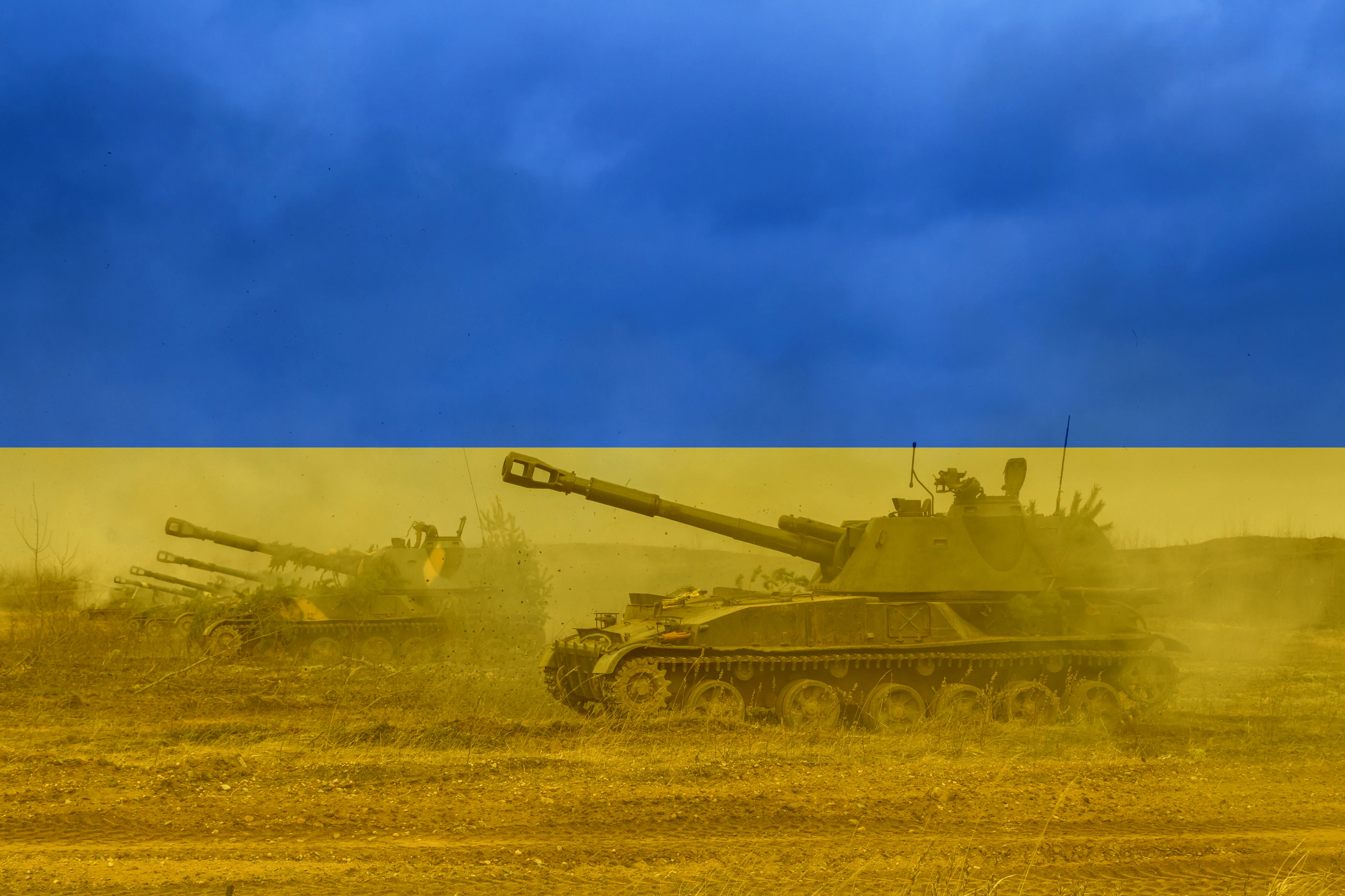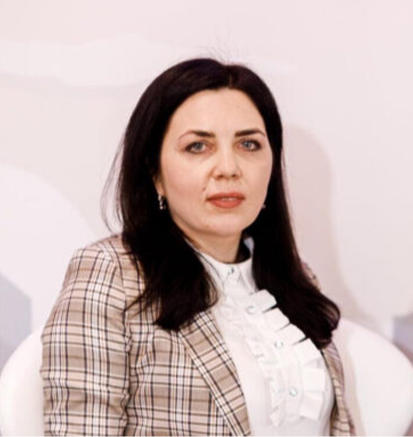
The war in Ukraine is not going according to the scenario Russia planned before the invasion. The Kremlin underestimated the ability of the Ukrainian military, the will of Ukrainians to fight for their freedom, and the solidarity of the transatlantic community. Since the start of the war at all negotiations, Ukraine's primary demand is the withdrawal of Russian troops, followed by a discussion of the mechanism for the return of Donbas and Crimea (occupied in 2014). The main goal of the Ukrainian government was and remains the restoration of Ukraine's sovereignty and territorial integrity.
Moscow, however, refuses to consider these demands, while trying to grab more Ukrainian territory. In newly captured regions, the Russian Army immediately establishes an occupation regime, putting in use the Russian currency, while banning the Ukrainian language and Ukrainian symbols, and turning off Ukrainian mobile communications and radio broadcasts. Currently, 20 percent of Ukrainian territories are under Russian occupation. Although at the beginning the Russian authorities justified their aggression against Ukraine with the “need to protect the rights of Donbas”, the desire to seize Kyiv and the occupation of parts of the Kharkiv, Zaporizhzhya and Kherson regions indicate a goal to establish control over entire Ukraine.
Russia's war against Ukraine has an existential nature for both sides. For Ukraine, this is a matter of preserving sovereignty and survival as a nation. For Russia, it is the will to satisfy the ambitions of great power, a status it lost after the collapse of the erstwhile Soviet Union. The conquest of the territory of Ukraine increases Moscow's chances of further intervening against the Baltic countries and the countries of Eastern Europe and establishing its influence in the post-Soviet space.
< style="color: #0063a9">The war has now entered a phase where Russia’s main goal is to reduce Ukraine’s resources—weaken the economy and the army and destroy the infrastructure.
The war has now entered a phase where Russia’s main goal is to reduce Ukraine’s resources—weaken the economy and the army and destroy the infrastructure. The Russian Army also combines intensive battles along the front line, shelling cities, villages, and infrastructure that are outside the limits of military operations. During the war, more than 3,000 rockets were fired, which led to the death of many civilians, including children. The main goal of it is to put additional pressure on the Ukrainian population and government to weaken their resistance and encourage Kyiv to make concessions. Today, there are no reasons for Ukraine’s capitulation. The terms of future peace are to be determined on the battlefield. Meanwhile, each side tries to gain advantages by having a stronger negotiating position.
The possibility of a counteroffensive by Ukrainian troops depends on the speed of delivery and enough western weapons. Long-range artillery systems, which the Ukrainian army finally managed to obtain, helped to destroy the military warehouses of the Russian Army in the occupied territories and to slow down the attacks in Donbas.
Since the beginning of the war, the Ukrainian authorities have been forced to fight on several fronts—military, economic, diplomatic, and informational. Each successful step of Ukraine—obtaining western weapons, approval of the status of a candidate for membership of the European Union and the introduction of seven packages of sanctions against the Russian Federation by the West, required extraordinary efforts of the Ukrainian authorities and President Zelensky personally. The policy of the European Union (EU) and North Atlantic Treaty Organization (NATO) regarding Ukraine has always been based on Russia's reaction. Russian aggression against Ukraine has become a serious challenge for European countries, a lot of which for many years were afraid to provoke Putin and continued to conduct “business as usual” with him.
Currently, when the western countries demonstrate their solidarity with Ukraine in its struggle against the Russian Federation, they face new challenges—the energy and food crises caused by the Russian–Ukrainian war. Rising prices for utilities, food, and rising inflation are putting pressure on western governments to determine how long their societies will be willing to send significant resources to support Ukrainians. Vladimir Putin knows how sensitive democratic countries are to the moods of their voters, primarily when it comes to economic stability and social protection. By prolonging the war in Ukraine, the Russian authorities aim to exhaust not only the Ukrainians themselves but also their partners.
< style="color: #0063a9">Rising prices for utilities, food, and rising inflation are putting pressure on western governments to determine how long their societies will be willing to send significant resources to support Ukrainians.
Meanwhile, the direct losses caused to the Ukrainian economy have already amounted to US $95.5 billion and these losses have been increasing daily. Western partners recently held the first meeting in the Swiss city, Lugano, regarding the post-war reconstruction plan for Ukraine. Ukrainian authorities have been additionally working on establishing the compensation mechanism for damages caused to Ukraine.
Russia is deliberately destroying Ukrainian enterprises and product warehouses to disrupt the functioning of the Ukrainian economy, which is expected to drop by 35 percent this year due to the Russian aggression. After two months of shock, the Ukrainian government managed to restore supply chains, relocate enterprises from the occupied territories, and conduct a sowing campaign, but Russia's blockade of Ukrainian ports creates a serious obstacle to Ukrainian exports.
About 22 million tons of grain from last year's harvest, planned for export, are currently blocked in Ukraine's granaries. Currently, farmers have started harvesting the new crop. Failure to receive funds threatens the bankruptcy of farmers and agricultural enterprises and may also lead to the termination of the next year's production cycle. Thus, though there is a global food grain shortage, due to the actions of Russia, Ukrainian farmers cannot sell their products. For Ukraine, the possibility of unblocking grain exports has two sides. On the one hand, it provides an opportunity to solve the problems of the farmers, on the other hand, it requires strong security guarantees for both: Cargo vessels and Ukrainian ports against possible capture by Russians. The concern of Ukrainians is fully justified, because the day after the signing of the agreement on the safe transportation of grain and food products from Ukrainian ports in Istanbul, Russian troops attacked the Odesa port with Kalibr missiles. For this agreement, Ukraine tried to secure guarantees from international partners because it does not trust Russia. Negotiations and signing of the agreement took place with the participation of the United Nation and Turkey. Russia has pledged not to attack civilian vessels travelling through the special corridor, as well as three agreed ports—Odesa, Yuzhnyi, and Chornomorsk—in exchange for lifting the sanctions on its agricultural sector. The shelling of one of the ports lowers the level of trust in Russia and complicates the implementation of the agreement. In such conditions, it will be difficult to guarantee the safety of ships and their crews, because the Russian Federation will be able to fire at them at any moment or even use their cover to attack Ukrainian ports. Russia's actions diminished the authority of Turkey, which seeks to become a constructive mediator in the Russian–Ukrainian war. Secretary General of UN Antonio Guterres personally supervised the negotiation process on unblocking Ukrainian ports. Successful implementation of the agreement would allow him to report on the merits of the UN in solving the world food crisis. Taking into account the organisation's failure to prevent war and bloodshed in Ukraine, this is at least an opportunity to illustrate its effectiveness.
However, reaching an agreement on unblocking the ports, as we can see, does not guarantee its proper execution and change Russia's military plans against Ukraine. Putin's spokesman, Dmitry Peskov, recently stressed that the Russian invasion will continue until all objectives are met. This decision has not been changed, even though Russia is suffering heavy losses. It is estimated that in five months of the war, Russia has already suffered more human losses than the Soviet Union did in 10 years of the Afghan war. In 2014, Russia easily annexed Crimea and occupied parts of Donbas due to the population in this region who supported Russia and Putin personally. Moscow tried to increase its influence using linguistic and cultural similarities, the Orthodox Church of the Russian Patriarchate, sponsorship of pro-Russian parties and integration of Kremlin’s agents into Ukrainian authorities. For the past eight years, the Ukrainian authorities worked to neutralise the centres of Russian influence inside Ukraine, but this problem was not fully resolved.
< style="color: #0063a9">Russia and Putin personally have a lot of experience in hybrid wars. It is important for Ukraine not to get caught in any trap by Moscow, such as a ceasefire, or peace negotiations on the terms of the Russian Federation, while Moscow continues to wage the war.
According to the results of the investigation, due to the improper performance of duties or the assistance of some officials, especially among security and law enforcement agencies, the Russian troops managed to quickly penetrate and capture Ukrainian territories such as Kherson and Zaporizhia regions. In this regard, President Zelensky initiated a “great clearance” amongst the employees of the Security Service of Ukraine and the General Prosecutor's Office, and changed their chairmen—Ivan Bakanov and Iryna Venediktova. The main complaint against the heads of these two departments was the presence of a large number of collaborators amongst the employees of the Security Service and prosecutor's offices.
It is obvious, that Ukraine faces a lot of challenges. To win this war, successful diplomatic and military approaches, a stable economic recovery and the aid of partners will be required. Russia and Putin personally have a lot of experience in hybrid wars. It is important for Ukraine not to get caught in any trap by Moscow, such as a ceasefire, or peace negotiations on the terms of the Russian Federation, while Moscow continues to wage the war. This will only postpone the end of the war, increase psychological pressure due to growing civilian casualties, spread disinformation, and increase activities of the pro-Russian lobby in the world, particularly in Europe, to pressure Ukraine to give in to Russia.
The views expressed above belong to the author(s). ORF research and analyses now available on Telegram! Click here to access our curated content — blogs, longforms and interviews.




 PREV
PREV


